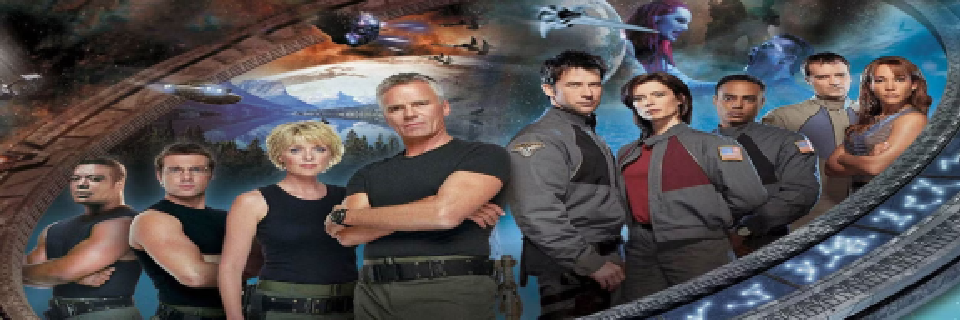‘Stargate’ is a science fiction television series based on the 1994 film of the same name, which was directed by Roland Emmerich and starred Kurt Russell and James Spader. The show, formally titled Stargate SG-1, expands upon the original concept of a mysterious ancient device known as the Stargate, a circular portal that allows near-instantaneous travel to distant planets across the galaxy by generating stable wormholes. The series begins when the United States Air Force reactivates the Stargate programme following the discovery that the device does not lead to just one planet, as originally believed, but to thousands of potential destinations scattered throughout the cosmos. This revelation prompts the formation of a military and scientific team known as SG-1, led by Colonel Jack O’Neill, joined by astrophysicist Dr Samantha Carter, archaeologist Dr Daniel Jackson, and the alien warrior Teal’c, a former servant of the Goa’uld.
The primary antagonists in the early seasons are the Goa’uld, parasitic beings who pose as gods to enslave and manipulate human populations across the galaxy, using advanced technology to maintain their power. These beings adopt personas from ancient Earth mythologies, particularly Egyptian, and their domination of many worlds sets up a recurring theme of resistance against tyranny. As SG-1 travels from planet to planet using the Stargate, they encounter both primitive and advanced civilisations, often drawn from Earth’s historical cultures due to the premise that ancient humans were transported through the Stargates by alien forces. The team’s mission is twofold, to explore new worlds and to defend Earth from extraterrestrial threats, all while slowly unravelling the vast network of alliances, enemies, and mysteries that exist beyond the gate.
Over its ten-season run, Stargate SG-1 evolves from episodic adventures into a complex narrative featuring interstellar politics, large-scale warfare, and philosophical questions about technology, identity, and the role of humanity in a universe filled with superior beings. The show introduces powerful allies such as the Asgard, a benevolent and technologically advanced race resembling the stereotypical grey alien, and dangerous foes like the Replicators, a relentless mechanical species that consume and replicate technology, threatening all life. The series also delves into the concept of ascension, a state of existence achieved by shedding the physical body and becoming energy, which raises moral and spiritual dilemmas for characters like Daniel Jackson, who undergoes this transformation more than once.
What sets Stargate apart from other science fiction series is its blend of military realism, scientific theory, and mythology, all delivered with a tone that balances humour and seriousness. The camaraderie among the SG-1 team members forms the emotional core of the series, with each character contributing unique perspectives and skill sets. Jack O’Neill’s dry wit and pragmatic leadership contrast with Daniel Jackson’s idealism and thirst for knowledge, while Carter bridges the worlds of science and military strategy, and Teal’c offers insight into alien cultures and loyalty grounded in honour. Their dynamic is both engaging and evolving, showing growth and change as the stakes increase and new threats emerge.
Following the conclusion of Stargate SG-1, the franchise expanded with spin-offs such as Stargate Atlantis, which explores a new team operating from the lost city of Atlantis in the Pegasus Galaxy, and Stargate Universe, which follows a group of survivors aboard an ancient ship millions of light years from Earth. Each series retains the core theme of exploration and survival while introducing new tones and challenges. The franchise also includes television films, novels, comics, and an enduring fan base that celebrates its rich mythology and character-driven storytelling.
In the United Kingdom, Stargate gained a significant following through broadcasts on Sky One and later through home media and streaming platforms, where its mix of speculative fiction, engaging characters, and episodic structure appealed to a wide audience. While the show often addressed grand concepts such as freedom, destiny, and the consequences of power, it remained grounded in the everyday experiences of its protagonists, making the extraordinary feel accessible. Its influence can be seen in subsequent science fiction television, particularly in its approach to ensemble casts, world-building, and the blending of science with mythology.
Ultimately, Stargate is remembered not just for its thrilling adventures and alien encounters, but for the humanity at its core, where trust, sacrifice, and perseverance are as vital as technology or tactics. It stands as one of the most enduring science fiction franchises of the late twentieth and early twenty-first centuries, a testament to the power of curiosity, cooperation, and the endless possibilities that lie beyond the stars.







